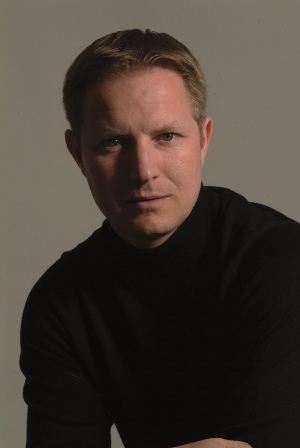As retail figures shoot through the roof and over-the-counter brands learn to speak our language, how do we embrace this and use it to our advantage? Sophia Wang caught up with Dr Paul Banwell to discuss the ‘synergy’ happening in our industry.

At Cosmetex this year Dr Banwell gave a keynote plenary lecture entitled ‘Beauty, Fashion and Cosmetic Medicine – what is the missing link?’ where he introduced the concept of ‘synergy’ between the three worlds and the importance of skincare. A world-renowned cosmetic and plastic surgeon and expert in topical treatments and skincare, Dr Banwell is an advocate of quality cosmeceutical ingredients and has advised various companies in the past including beauty retail giants L’Oréal, Boots and Heliocare.
“ Most plastic surgeons will solely concentrate on surgery but I seem to be quite unusual in that I have a fascination with the function, form and modification of our skin,’ he said.
He now spends his time researching the best products and ingredients from around the globe and is a huge fan of the Australian cosmeceutical brand Rationale.
The common purpose of the beauty industry
The world of beauty is united in the common purpose to define and create what is considered beautiful. This billion dollar industry intersects the realms of fashion and cosmetic medicine, “the common thread, especially in the beauty and fashion industry is about how good you look,” said Dr Banwell. While clothes and designers adorn your body and convey your persona, your skin is also an outward face to the world and constructs your identity.
Synergy – encroaching on our turf?
The ‘synergy’ he talks about is best exemplified by the gradual shift of retail beauty into the professional medical skincare arena. “The [retail] beauty industry is heavily marketing-driven and they are now realising the benefits of incorporating active ingredients found in medical skincare,” he said, pointing as an example to an anti-ageing cream ad with a tagline that suggested the product alone could delay the need for laser treatments. “The cosmetic giants are realising the power of the skin and overtly declaring that certain skincare products may in some cases be just as effective as more invasive procedures.”
“There is a definite role and position for over-the-counter (OTC) products for the everyday consumer but upgrading to cosmeceuticals who use more powerful actives will undoubtedly lead to better results,” said Dr Banwell. The adoption of professional skincare jargon in the retail world has led consumers to realise the importance, efficacy and accessibility of professional skincare.
Building a bridge
The missing link between retail and professional is a bridge that connects the consumer to a more advanced sphere. Previously uncomfortable and unfamiliar about cosmeceuticals and medical skincare, they are now aware and understand how skincare can fix – not just cover up their skin concerns.
This has been realised in many ways: for instance, professional medical cosmeceutical brands are starting to introduce powerful skincare products aimed at specific markets. Eg. ManeNocte aimed at young, hip professionals (www.manenocte.com). These ranges contain powerful ingredients but at a reduced concentration, offering a perfect transition for an upgrade to more powerful ranges in the future. Consumers can therefore experience what it is like to have a truly beneficial skincare regime. In addition, cosmeceutical brands are starting to release products that target specific problems: like acne and pigmentation.
This particular niche between the professional and retail space can be extremely profitable and beneficial for both consumers and professionals – patients are getting excellent advice and positive changes in their skin and the professionals have the opportunity to educate.
Education, our point of difference

Education is another crucial element that sets professional medical skincare brands apart. Retail counters focus on marketing – purchases made are based on brand, packaging, and the intangible luxury feeling that it gives. In contrast, as medical professionals we have the knowledge and expertise to educate clients in all aspects of skin health and skin pathology.
The power of the internet has changed the discourse between professionals and clients/patients – they are now more savvy and self-educated. They don’t want step-by-step instructions on a prescribed skincare system; they want to know what is causing their skin concerns, how it can be regulated and how the products will work.
“It’s very important for all members of the cosmetic medicine industry to be educated consistently and to be knowledgeable,” Dr Banwell said. The model may be highly beneficial to all parties: “it is a win-win situation giving patients quality education and luminous skin; if you do it in the right way it has life-long benefits because these patients will trust you and keep returning for more – this is all good for business” he added.
Building a professional network
Dr Banwell also believes in extended networking within the cosmetic medicine arena where salons/spas, aestheticians, cosmetic doctors, dermatologists and plastic surgeons can all help each other in business. They exist in separate spheres in the industry and are not in direct competition.
“I encourage the industry to build up a network where beauticians, plastic surgeons, doctors and dermatologists all communicate with each other,” said Dr Banwell. He is pushing for professionals to understand the work of others, and recommend each other as a value-adding exercise, “it definitely increases the beautician’s credibility if they have an association with a professional,” he added. When clients want medical treatment, beauticians can refer clients to linked clinics. “Similarly, plastic surgeons and cosmetic doctors do not want to invade the beauty space and can refer patients on – we find it works really well”.
Breaking down the consumer’s barrier of fear
Cosmeceutical and medical grade skincare can also help women cross the bridge between skincare and non-surgical medical procedures. “The thought of entering into cosmetic medicine and surgery is actually a very scary one,” said Dr Banwell, “medical skincare can take patients into a more advanced ‘space’ and once you get in to the doctor’s office, it helps break down those barriers.” As a process that begins with retail lines by professional brands, the result is a better grasp on the possibilities of skincare and preparation for further cosmetic procedures. “It helps women enter that space; it makes medical procedures and injectables a lot less scary,” Dr Banwell said.
OTC products can never replace the potency of medical cosmeceutical skincare, a bottle of feel-good cream will never be able to erase the signs of ageing, eradicate pigmentation or sweep away years of cystic acne. Seeing their movement into the professional’s territory in a positive light, they are not only directing consumers our way, but are also helping demolish walls that previously separated women from more advanced skincare and the non-surgical (and surgical) cosmetic world.
For more information visit www.paulebanwell.com, www.skinhealth.org.uk or www.rationale.com

